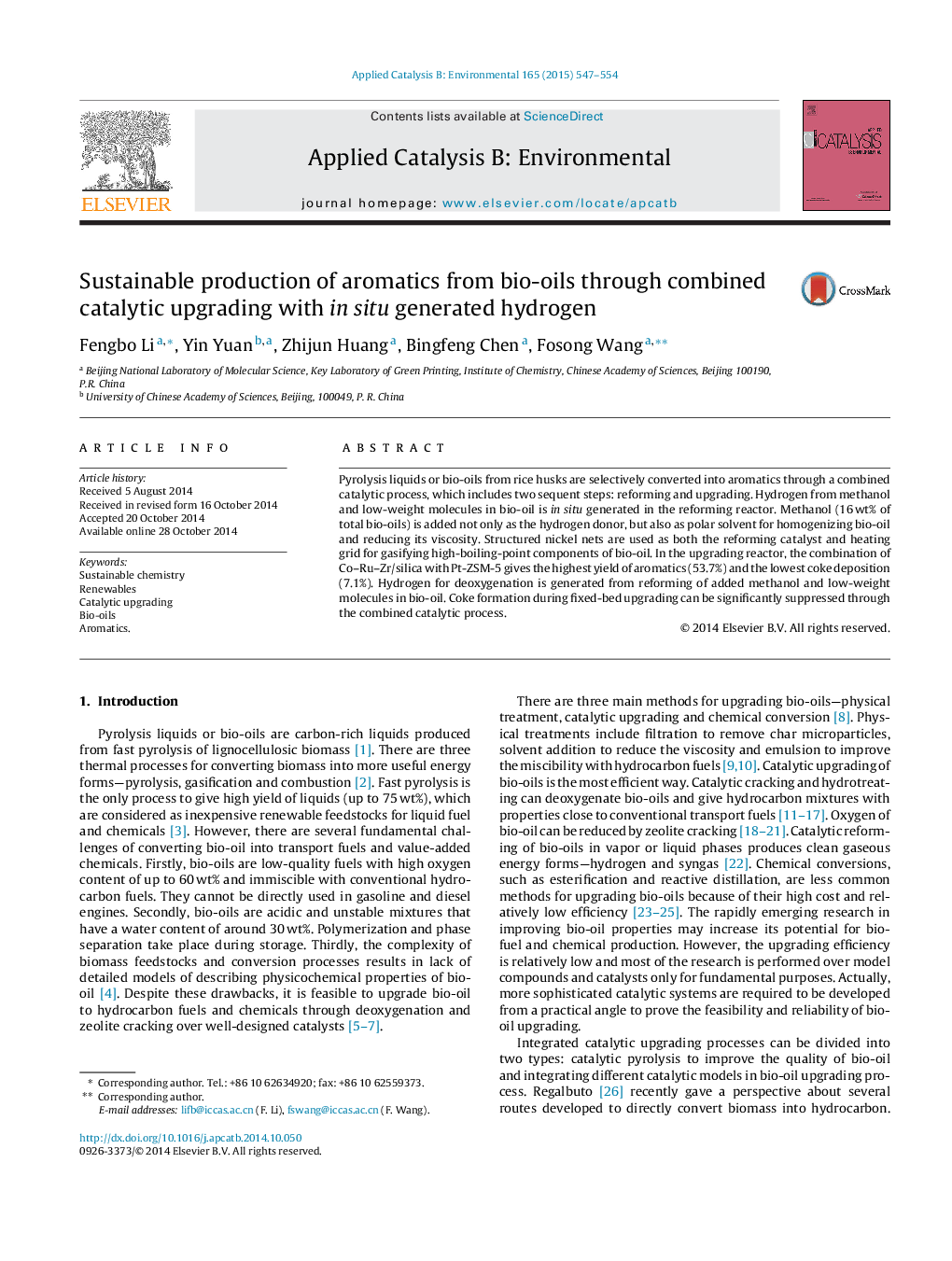| کد مقاله | کد نشریه | سال انتشار | مقاله انگلیسی | نسخه تمام متن |
|---|---|---|---|---|
| 45586 | 46416 | 2015 | 8 صفحه PDF | دانلود رایگان |
• Bio-oils were upgraded through a combined catalytic process.
• Aromatics were produced with a high carbon yield.
• Methanol was added as the hydrogen donor and bio-oil homogenizing agent.
• Hydrogen was in situ generated by reforming of methanol and low-weight components.
Pyrolysis liquids or bio-oils from rice husks are selectively converted into aromatics through a combined catalytic process, which includes two sequent steps: reforming and upgrading. Hydrogen from methanol and low-weight molecules in bio-oil is in situ generated in the reforming reactor. Methanol (16 wt% of total bio-oils) is added not only as the hydrogen donor, but also as polar solvent for homogenizing bio-oil and reducing its viscosity. Structured nickel nets are used as both the reforming catalyst and heating grid for gasifying high-boiling-point components of bio-oil. In the upgrading reactor, the combination of Co–Ru–Zr/silica with Pt-ZSM-5 gives the highest yield of aromatics (53.7%) and the lowest coke deposition (7.1%). Hydrogen for deoxygenation is generated from reforming of added methanol and low-weight molecules in bio-oil. Coke formation during fixed-bed upgrading can be significantly suppressed through the combined catalytic process.
Figure optionsDownload as PowerPoint slide
Journal: Applied Catalysis B: Environmental - Volume 165, April 2015, Pages 547–554
